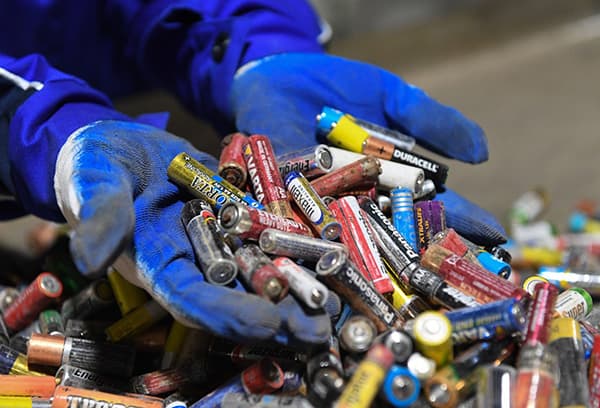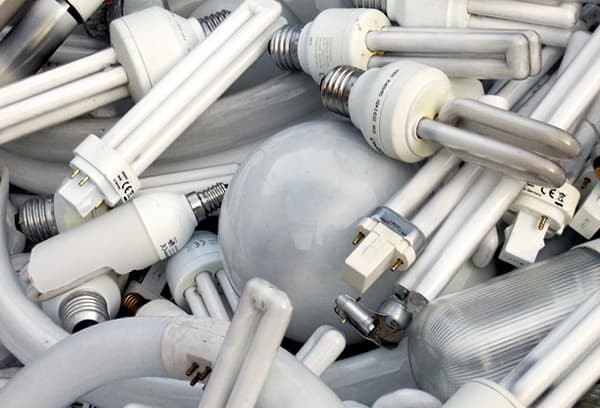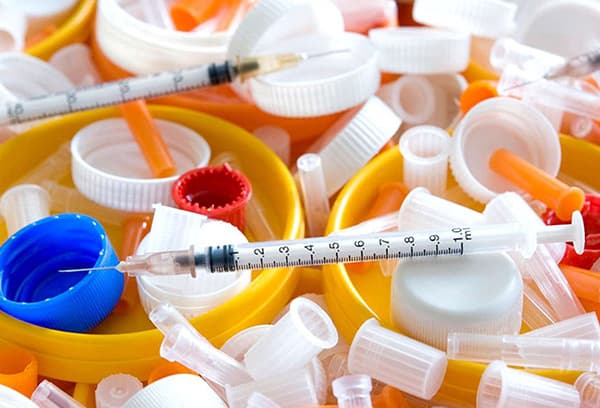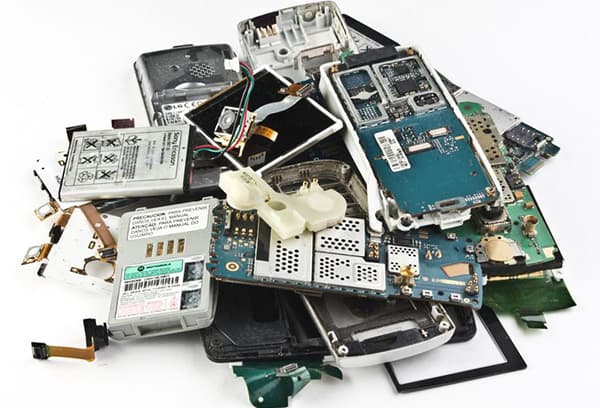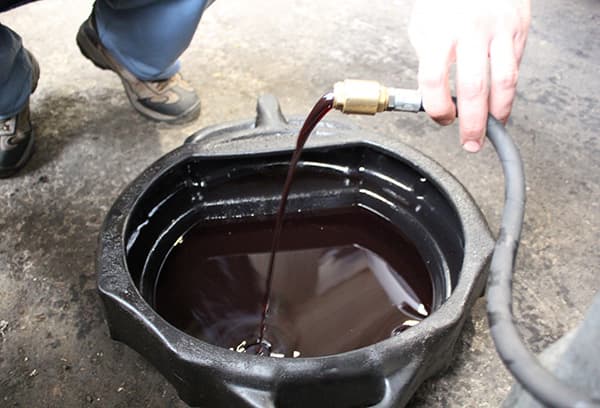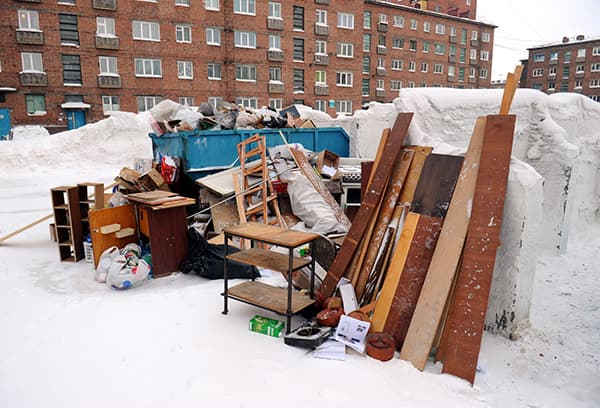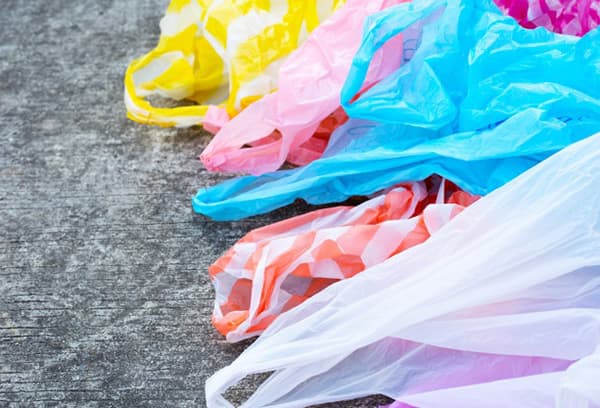Hazardous waste: what should not be thrown in the trash?
Content:
Garbage collected by one family over several days is thrown into a regular municipal solid waste (MSW) container. Products that require disposal should not be thrown into trash cans. Some products have special markings. A crossed-out container for solid waste means that special processing is required - neutralization.
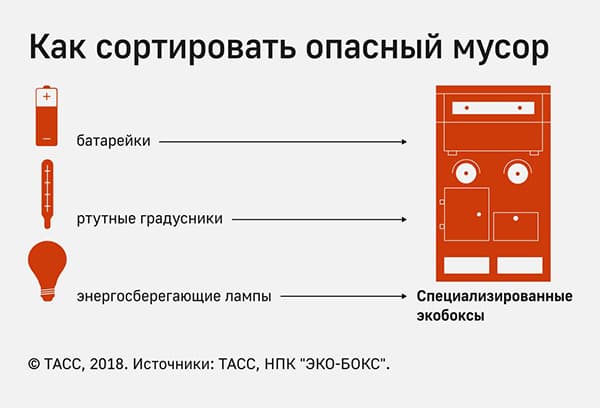
Garbage not intended for regular containers
The list of “special” types of waste is not too long and is easy to remember. These are products that are safe for household use. However, when no longer in use, they end up in the natural environment and can cause environmental damage. Such products should not be thrown into regular waste bins.
Batteries and accumulators
Even used devices contain harmful substances, such as alkalis and heavy metals. After the destruction of the metal shell, the chemicals penetrate with precipitation into the soil and groundwater, creating a threat to the environment and human health. The danger also lies in the ability of lithium batteries to self-explode.
There are collection points for rechargeable batteries in cities.Batteries are “clients” for disposal of household hazardous waste in landfills.
Mercury-containing lamps, thermometers
Such products are safe as long as the metal is insulated with a glass casing. Once its integrity is compromised, mercury pollutes the air, soil, and water. In Russia and other countries, the collection of lamps and other mercury-containing devices separately from other types of solid waste has been introduced by law.
Such products are accepted from the public free of charge at collection points and sent for recycling, which is carried out by specialized enterprises. It is important to hand over used lamps in cardboard packaging.
Non-toxic lamps - incandescent, halogen - can be thrown into the trash. It is advisable to put them in a paper bag or box so that no one gets cut. LED light bulbs are used for recycling, but the service has not yet become widespread.
Chemical substances
This group includes substances hazardous to the natural environment:
- remnants of household chemicals, paints, varnishes, glue;
- unused cosmetics;
- medical waste;
- pesticides.
If the listed substances are disposed of in landfills, they will end up in groundwater and surface waters after being washed out.
Waste from household and computer equipment, broken batteries from mobile phones
Functional equipment, when used, does no harm. If the housing is damaged, toxic compounds enter the air, soil and water, harming human health and the environment.
The electronic components of the devices contain:
- lead;
- nickel;
- cadmium;
- beryllium;
- various non-metallic additives.
To get rid of hazardous waste, you need to find a recycling organization or use the equipment return program that many manufacturers offer.
A phone that has become unusable or unfashionable should not be thrown into the trash container. You can take it to a gadget repair point, where there is a basket for receiving faulty phones.
Automotive products
Used oils and antifreezes must be properly disposed of after replacement. You can contact the nearest service station where there are conditions for performing this work. It is prohibited to throw not only technical fluids into containers, but also car tires.
Construction and bulky waste
Construction and major repairs are not complete without waste. When buying new furniture, we are faced with the problem of disposing of the old one. It is necessary to organize the removal of such waste separately from household waste.
Polyethylene
In its original form, when we use plastic bags and bottles, this substance is non-toxic. It becomes dangerous when released into the environment due to a long period of decomposition. You cannot burn polyethylene - a lot of toxic organic substances are formed.
Disposal is possible after grinding the waste in special installations. However, many municipal programs in the field of solid waste “slip” on polyethylene. Environmentalists suggest that as a way out of this difficult situation, we should refuse plastic bags that are harmful to the environment.
Unfortunately, the culture of consumption lags behind the growth rate of the population's well-being. Not all residents of cities and villages know that lamps, remains of paint and varnish products and other hazardous substances, equipment and furniture that have become unusable should not be thrown into landfills.There are still few people willing to give up plastic bags.
Environmental laws and regulations in force in the field of solid waste protect the natural environment and people from waste. If they are violated, administrative punishment in the form of a fine will follow. You can avoid trouble and at the same time make a feasible contribution to environmental protection. To do this, you should not throw certain types of garbage into household waste containers, but hand them in for recycling.
